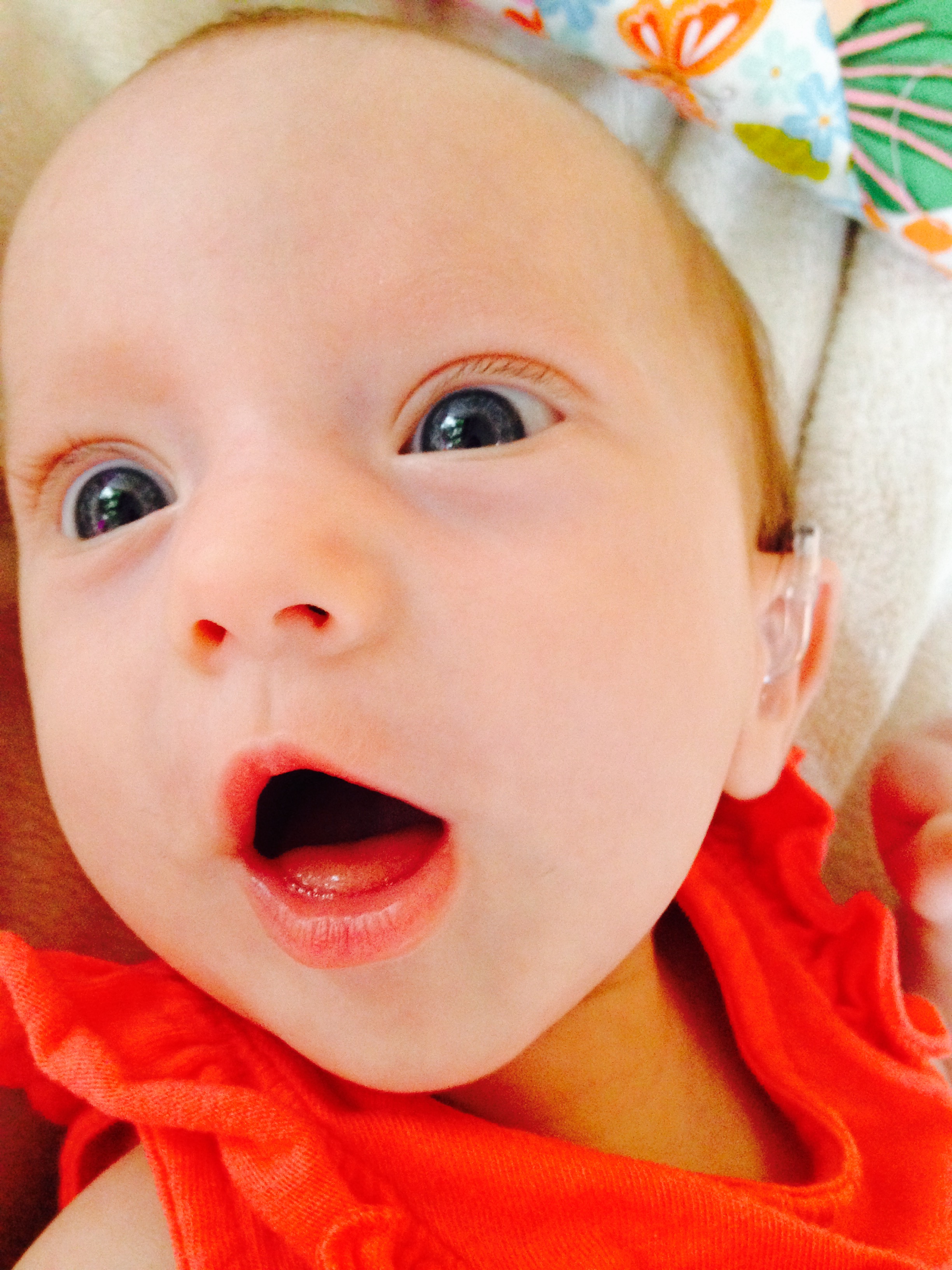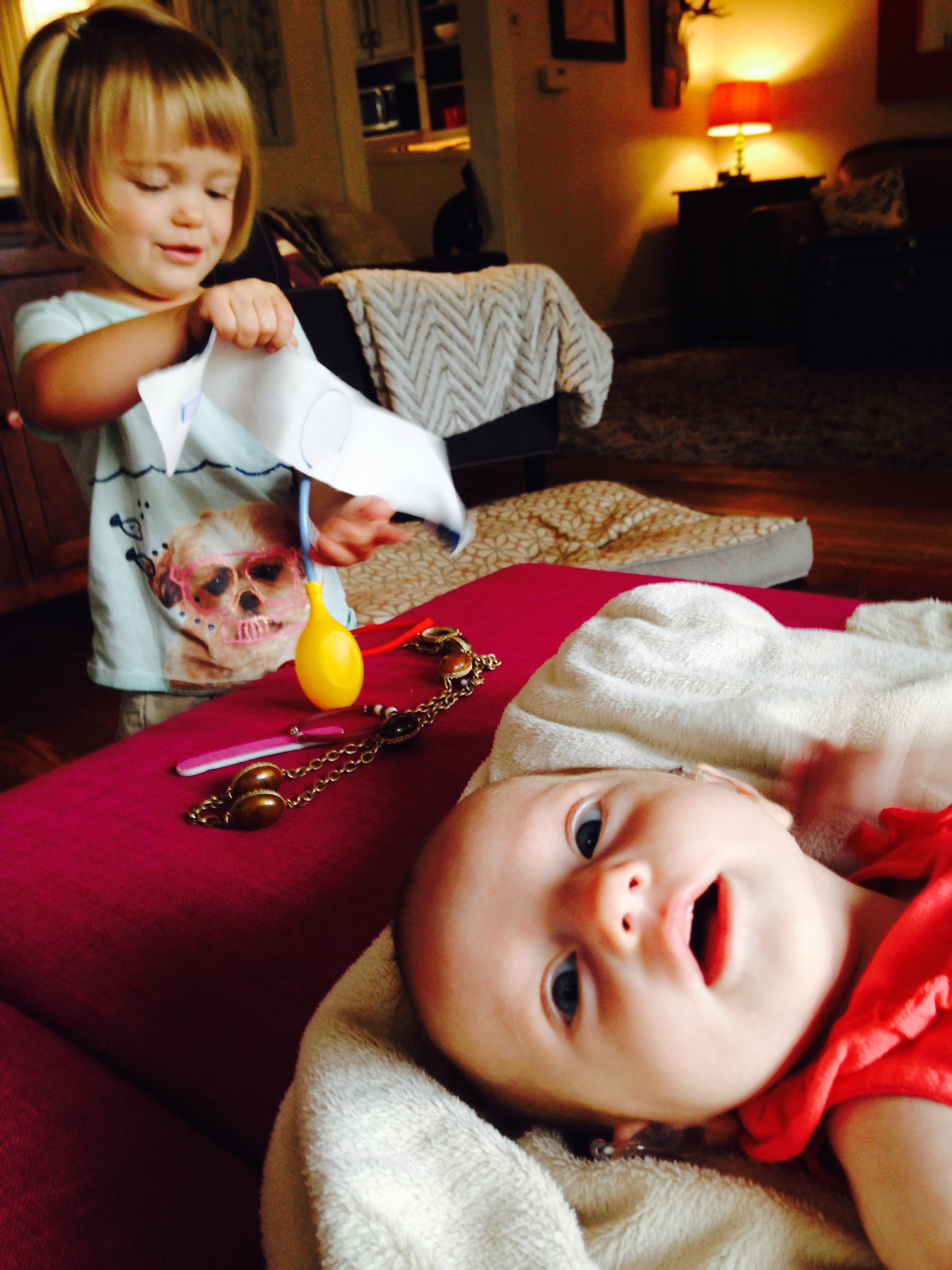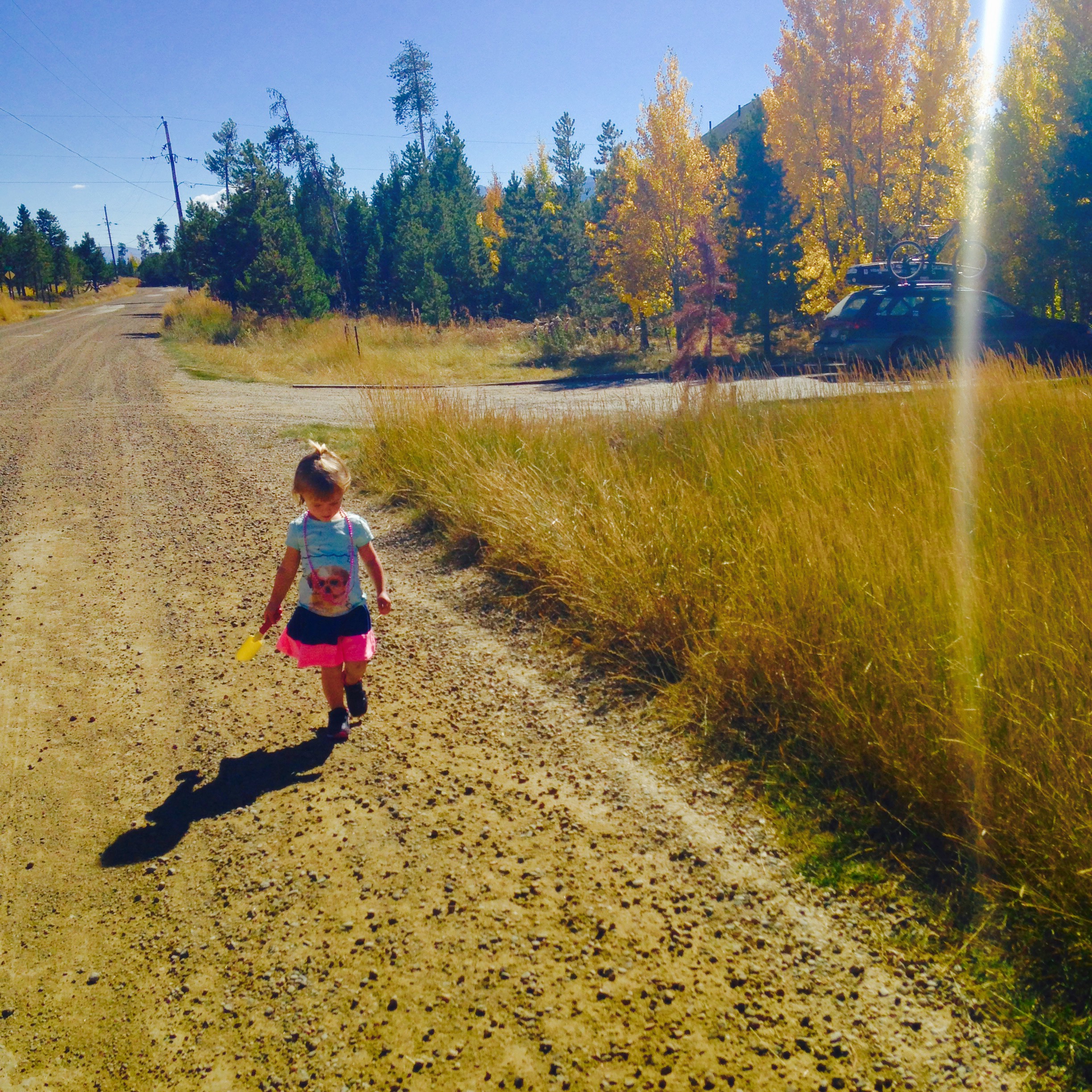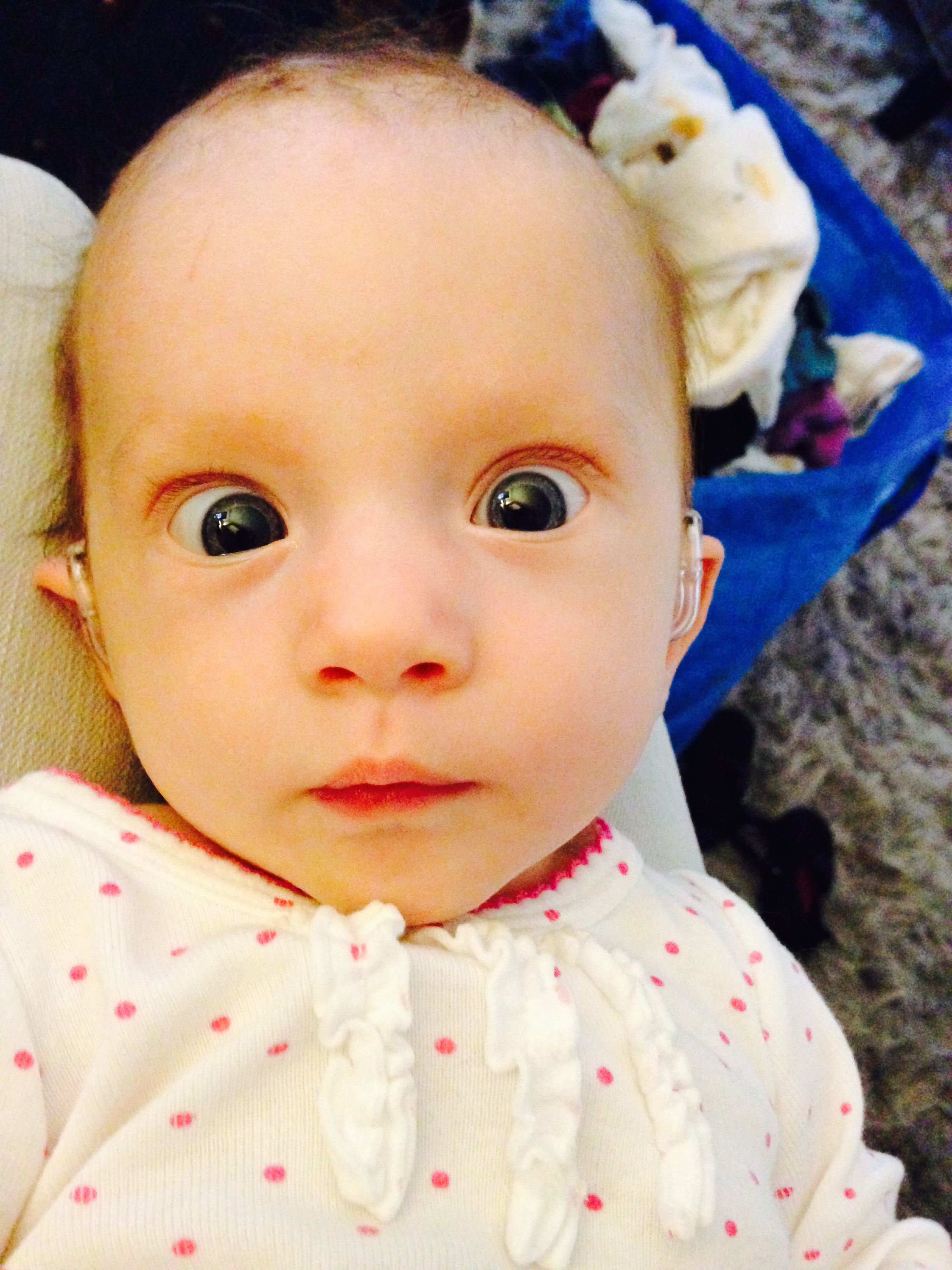What We Can Handle
 We have so many appointments for Anna, I had to buy a two-by-three-foot wall calendar for our kitchen, which I consult multiple times a day, failing every day to remember what we have scheduled that afternoon. We have appointments with Infectious Disease at Children's Hospital; we have a hearing aid audiologist and a cochlear implant audiologist; we have an ENT; we have an ophthalmologist; we have biweekly blood draws at the lab; we have a case manager, occupational therapist, and physical therapist through state disability services; we have a deaf and hard of hearing resource coordinator; an audio-verbal therapist; an Anat Baniel Method practitioner; and, finally, a good old pediatrician.
We have so many appointments for Anna, I had to buy a two-by-three-foot wall calendar for our kitchen, which I consult multiple times a day, failing every day to remember what we have scheduled that afternoon. We have appointments with Infectious Disease at Children's Hospital; we have a hearing aid audiologist and a cochlear implant audiologist; we have an ENT; we have an ophthalmologist; we have biweekly blood draws at the lab; we have a case manager, occupational therapist, and physical therapist through state disability services; we have a deaf and hard of hearing resource coordinator; an audio-verbal therapist; an Anat Baniel Method practitioner; and, finally, a good old pediatrician.
I cannot believe that this is what people go through who have kids with health issues--people whose husbands cannot pick their child up from school because she is crying, people who do not have the luxury of their mom coming over with dog food and beef and coat hangers because the grocery store isn't currently possible. Today, because my mom was over for a few hours and Zaley was asleep and the baby was calm, I rushed to Safeway for Zaley's school lunches, and because I am a retail junky when I'm feeling overwhelmed, I turned around in the driveway when my mom gave me the thumbs up for a still-happy baby, and went ahead and bought myself a few sweaters I didn't really need at Ross.
I like to think of our family as not trying to keep up with the Joneses, but because Zaley was trying to eat the other kids' lunches at school, I realized today while grocery shopping what a fallacy this is. I bought s'mores mini muffins and some kind of chocolate-covered dessert bar masquerading as healthy because it contains granola, and pepperoni, and fruit gummies (and truth be told, I almost bought zebra cakes), just so my child isn't the one derailing the preschool classroom at lunchtime because she wants some other kid's "sugar treat." Even though her school is cute and small and the other unassuming moms are also sometimes wearing sweatpants like me when they drop their kids off, I already feel myself ceding to the decisions of other parents, or diluting my own decisions so we can be like the others.
 However, this will not--cannot--be the case with Anna. When I bring Zaley to school, Anna is wearing her hearing aids. I must explain to people that she is deaf. The hearing aids are a point of confusion and a point of marked apartness--one of many differentiations that remind me she is not like the other babies we know her age. She is still so much smaller, so much wobblier--less pronounced, I could say--than they are. When other babies her age smile, their smiles seem stretched to their limits, where hers is, at most, a mild amusement. I am proud of this smile for its moderation and wisdom. Those silly, over-acting other babies, I tell her. Pshhh, so pompous! Chill out, super-smiley babies. Who're you trying to impress?!
However, this will not--cannot--be the case with Anna. When I bring Zaley to school, Anna is wearing her hearing aids. I must explain to people that she is deaf. The hearing aids are a point of confusion and a point of marked apartness--one of many differentiations that remind me she is not like the other babies we know her age. She is still so much smaller, so much wobblier--less pronounced, I could say--than they are. When other babies her age smile, their smiles seem stretched to their limits, where hers is, at most, a mild amusement. I am proud of this smile for its moderation and wisdom. Those silly, over-acting other babies, I tell her. Pshhh, so pompous! Chill out, super-smiley babies. Who're you trying to impress?!
I love Anna in an absolute, obsessive sense as she is, but it doesn't mean that I don't notice how different she is.
 We are driving 45 minutes to Niwot multiple times a week for the Anat Baniel Method (ABM) therapy my friend Beth recommended to me. Her son with autism benefited greatly from it and I liked the sound of it--it's not "woo woo," it is predicated upon the idea of "brain plasticity"--that the brain is not only constantly changing, but in a child whose brain has been affected by, say, a virus or a stroke, the undamaged parts of the brain can take over and organize functions they don't ordinarily do. Anat, an Israeli clinical psychologist, developed the method 30 some years ago, and the best way I can describe it is very slow, smart, physical therapy for kids who are not "neurotypical," either because of an infection, a hereditary condition, cerebral palsy, or autism. The underlying premise of the therapy is that you work with kids where they're at, focusing on what they can do rather than what they can't, and giving their brain enough variation that they begin to grow because of a new awareness of possibility.
We are driving 45 minutes to Niwot multiple times a week for the Anat Baniel Method (ABM) therapy my friend Beth recommended to me. Her son with autism benefited greatly from it and I liked the sound of it--it's not "woo woo," it is predicated upon the idea of "brain plasticity"--that the brain is not only constantly changing, but in a child whose brain has been affected by, say, a virus or a stroke, the undamaged parts of the brain can take over and organize functions they don't ordinarily do. Anat, an Israeli clinical psychologist, developed the method 30 some years ago, and the best way I can describe it is very slow, smart, physical therapy for kids who are not "neurotypical," either because of an infection, a hereditary condition, cerebral palsy, or autism. The underlying premise of the therapy is that you work with kids where they're at, focusing on what they can do rather than what they can't, and giving their brain enough variation that they begin to grow because of a new awareness of possibility.
For example, one three-year-old girl with severe cerebral palsy in Anat's book (which I would highly recommend as a mindful parenting book even if you don't have a child with special needs), couldn't walk. After many sessions of observations and working on things like sitting and balance and speech, Anat realized this little girl could not walk because she had never differentiated one leg from another. She came into the clinic with her legs wrapped together by muscles that had never released. By first touching the girl very lightly on different sides of her body, and then having the girl draw a dog on her left leg, and a cat on her right leg--complete with all the many differences specific to a cat and a dog--the girl realized for the first time that she had two legs. She lit up. She moved her legs apart. And soon, she was walking.
 At Anna's ABM sessions, she lies on a mat while Barbara (the practitioner here) moves her body through all kinds of positions. She touches the sole of one foot to Anna's other knee. She tilts her pelvis so that her wobbly head gains a little lift. She entices her to eat her feet. She reminds me that we aren't going to focus on the fact that Anna can't hold up her head, but that every muscle that strengthens in her body will lead to her eventually being able to do it. I love to watch Barbara at work with Anna. Anna coos and opens her mouth wide to Barbara's modifications. She is not allowed to cry, and as soon as she does, Barbara either gives her to me to nurse her, or the session is over. I know she's not even 4 months old, but I swear she experiences joy as she moves through all the positions she didn't know her body could take. If she does have cerebral palsy (she has a stiff arm, prolonged reflexes, hyper- and hypotonal muscles), Barbara tells me that starting this early could make the manifestations of it barely noticeable.
At Anna's ABM sessions, she lies on a mat while Barbara (the practitioner here) moves her body through all kinds of positions. She touches the sole of one foot to Anna's other knee. She tilts her pelvis so that her wobbly head gains a little lift. She entices her to eat her feet. She reminds me that we aren't going to focus on the fact that Anna can't hold up her head, but that every muscle that strengthens in her body will lead to her eventually being able to do it. I love to watch Barbara at work with Anna. Anna coos and opens her mouth wide to Barbara's modifications. She is not allowed to cry, and as soon as she does, Barbara either gives her to me to nurse her, or the session is over. I know she's not even 4 months old, but I swear she experiences joy as she moves through all the positions she didn't know her body could take. If she does have cerebral palsy (she has a stiff arm, prolonged reflexes, hyper- and hypotonal muscles), Barbara tells me that starting this early could make the manifestations of it barely noticeable.
 It's funny. When Anna first failed her hearing tests, I prayed that we wouldn't have to get hearing aids. Now, they seem like the smallest of nuisances, and I seem so vain as I look back at myself, sitting in the hospital, thinking, I don't want my daughter to have to wear those. When I found out she was deaf, I wanted to run away, and now I feel our family running towards all that we can find out and learn from deaf teachers, deaf high school students, deaf families, deaf children. When I first learned that cerebral palsy might be a part of having cmv, I felt like fleeing for real, like taking Zaley and Anna to some small doctor-less town on a river, away from all these acronyms and internet searches and appointments. I would bundle her so her limbs would never be bigger or less better than any other baby who was born healthy on a hot day in June in a hospital where 32 other babies looked up at the lights and nursed from their mothers and went home and lived normal baby lives. But now, I am not running from the implications of cerebral palsy if she does end up having that, too. "This is all part of who she is," Luke reminds me, "And we'll just be there for her through all of it." These are the simple things that make the big things shrink till they're digestibles. I guess I know that you handle what you're handed. And you can't handle what you haven't been given.
It's funny. When Anna first failed her hearing tests, I prayed that we wouldn't have to get hearing aids. Now, they seem like the smallest of nuisances, and I seem so vain as I look back at myself, sitting in the hospital, thinking, I don't want my daughter to have to wear those. When I found out she was deaf, I wanted to run away, and now I feel our family running towards all that we can find out and learn from deaf teachers, deaf high school students, deaf families, deaf children. When I first learned that cerebral palsy might be a part of having cmv, I felt like fleeing for real, like taking Zaley and Anna to some small doctor-less town on a river, away from all these acronyms and internet searches and appointments. I would bundle her so her limbs would never be bigger or less better than any other baby who was born healthy on a hot day in June in a hospital where 32 other babies looked up at the lights and nursed from their mothers and went home and lived normal baby lives. But now, I am not running from the implications of cerebral palsy if she does end up having that, too. "This is all part of who she is," Luke reminds me, "And we'll just be there for her through all of it." These are the simple things that make the big things shrink till they're digestibles. I guess I know that you handle what you're handed. And you can't handle what you haven't been given.
Of course, there are still the days when the cliches shouldn't be cliches because they feel so real and singular to this one life of mine: why her? If God is good, why this? Why can't Anna hear me like Mia's baby can when we are sitting with the girls on the couch tonight and both babies are looking up at us and babbling and seemingly listening?
 We found out last week at our long-awaited ophthalmology appointment that Anna's eyes are "perfectly healthy." The leaves in the mountains have turned a sweet corn yellow with burnt edges that look like they've been held up to heat. My mom's cousin John and his wife Mary, who are like an uncle and aunt to me, came to town and played "salon" with Zaley for hours in my brother Michael's backyard. Sometimes watching other people with my children makes me love them doubly. We grilled elk. Anna watched the paper lanterns shift in the breeze. I prayed a thank you for the gift of a simple, unconflicted evening. I said my silent goodbyes to this summer as the brown leaves spun down the middle of the street.
We found out last week at our long-awaited ophthalmology appointment that Anna's eyes are "perfectly healthy." The leaves in the mountains have turned a sweet corn yellow with burnt edges that look like they've been held up to heat. My mom's cousin John and his wife Mary, who are like an uncle and aunt to me, came to town and played "salon" with Zaley for hours in my brother Michael's backyard. Sometimes watching other people with my children makes me love them doubly. We grilled elk. Anna watched the paper lanterns shift in the breeze. I prayed a thank you for the gift of a simple, unconflicted evening. I said my silent goodbyes to this summer as the brown leaves spun down the middle of the street.